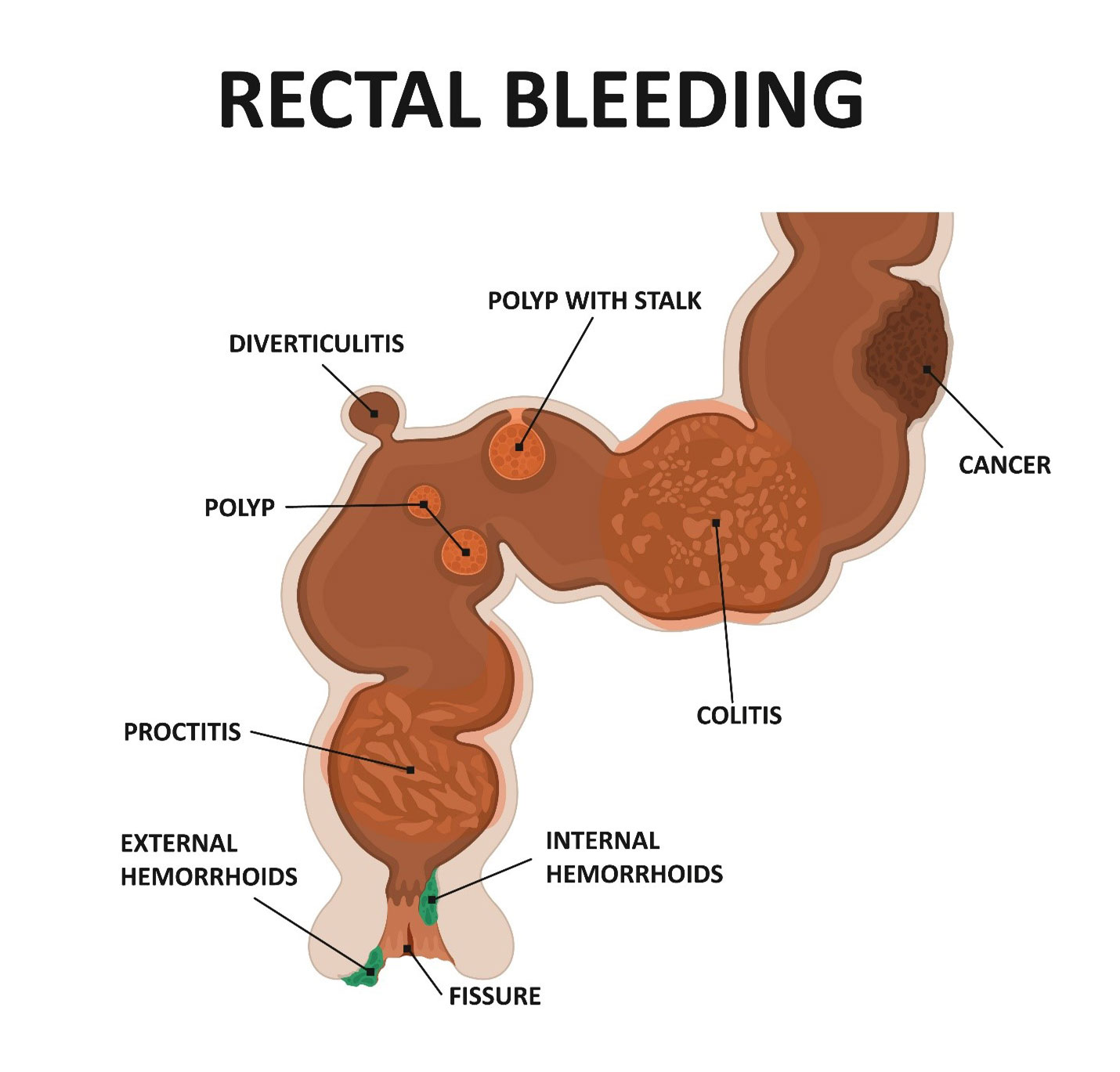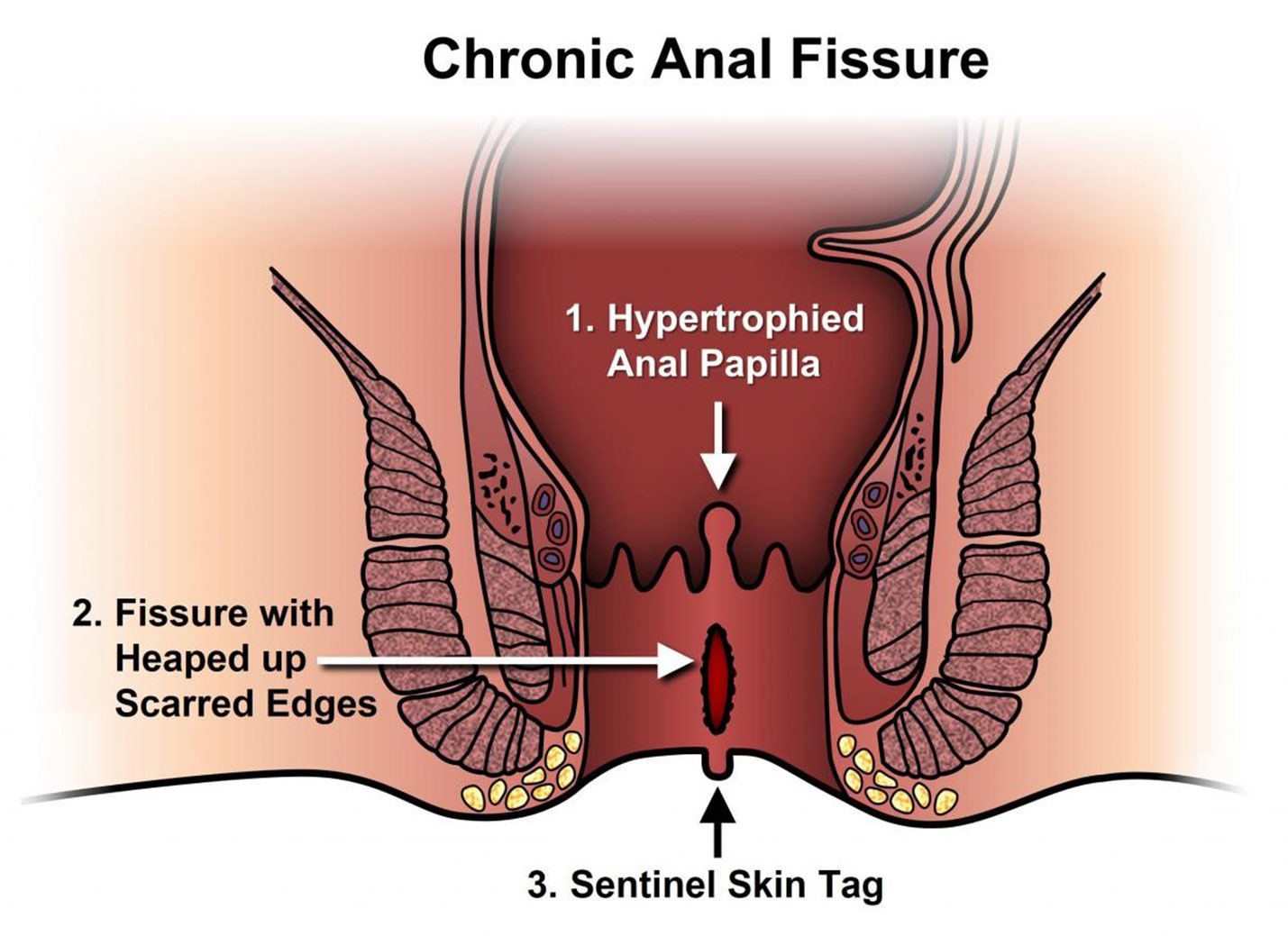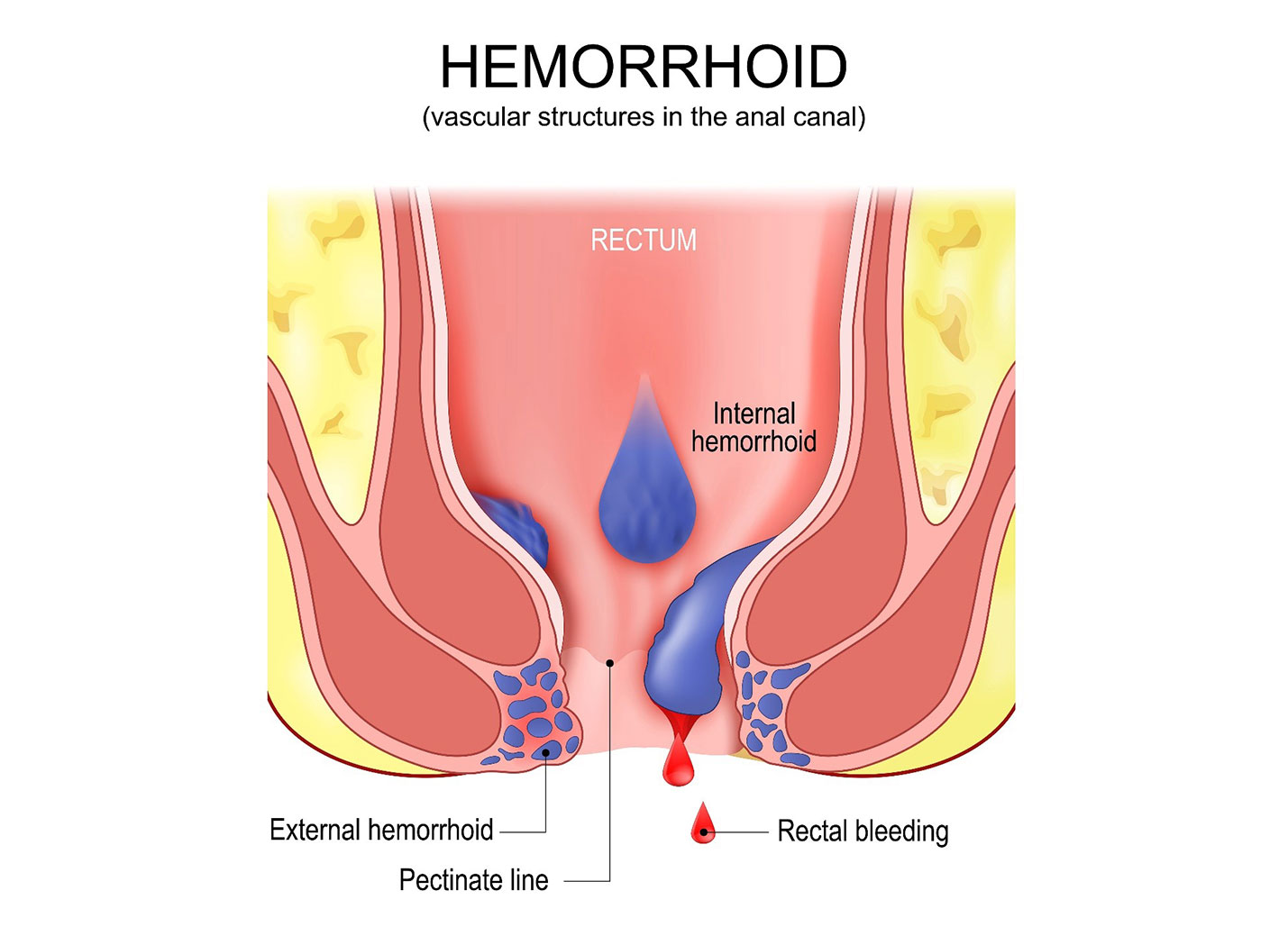Conditions And Treatments
Home / Areas Of Specialty / Rectal Bleeding
Rectal Bleeding
Rectal bleeding or Anal bleeding can be minor when you see small drops of blood with the bowel movements or on wiping the anal area. It can be heavy if you have a severe bleeding and can be associated with the pain. If you have a minor or intermittent anal bleeding, then you can seek a consultation appointment from a colorectal surgeon. However, if the bleeding is heavy and significant then it may need urgent intervention or treatment and in that case you should go to the emergency room for an evaluation. Most common causes of bleeding benign. Basically, anal bleeding can be from hemorrhoids, polyps, anal fissure. Here is a list of common causes of rectal bleeding.
1. Anal fissure
Anal fissure is a small tear or cut in the lining of the anal canal. It is a common condition and you may feel like a paper cut in the anal area causing sharp pain. It can cause rectal bleeding associated with the pain. However, this can often be confused with other conditions like hemorrhoids. Its usually caused by constipation, diarrhea or other changes in the bowel habits and occasionally with the trauma. The common modality of treatment is with the high-fiber diet, local medications and sometimes sitz baths.

2. Internal hemorrhoids
Internal hemorrhoids can cause anal rectal pain and bleeding. Most commonly, bleeding associated with the internal hemorrhoids is painless bleeding. Certainly, patients usually may have bright red bleeding with the bowel movements or after the bowel movements and sometimes on wiping. You should not ignore this as even a minimal bleeding intermittently can cause significant blood loss and affect body functions. Remember, no bleeding is normal. You should seek a consultation from a colorectal surgeon if you’re suffering from hemorrhoid bleeding. Common treatment modalities include diet, lifestyle changes and local medications. Hemorrhoid rubber banding also known as a rubber band ligation of internal hemorrhoid is another procedure that can be performed to shrink internal hemorrhoids in the office. However, other treatment options include injections with sclerosing agents, infrared coagulation and surgical hemorrhoidectomy as a last resort.
3. Colon and Rectal polyps
Colon and rectal polyps can cause intermittent rectal bleeding and occasionally, heavy rectal bleeding. If you suffer from minor intermittent rectal bleeding then please make an appointment with your colorectal surgeon or your primary care physician for evaluation.


4. Diverticulosis
Diverticulosis is a condition in which you form small pockets in the lining of the colon. Moreover, these are the weak spots in the colon wall and can lead to bleeding from the blood vessels within the pocket. It usually can cause severe heavy bleeding.
5. Bleeding from stomach and upper intestinal tract
Occasionally, the bleeding is heavy from the stomach or small intestine and, it can lead to fast transit into the colon. This can also show up as rectal bleeding. Another key point, If the bleeding is heavy you should go to the hospital.
6. Crohn’s disease and ulcerative colitis
It is a chronic inflammatory disease of the bowel which can involve the intestinal tract. It can cause inflammation and damage to the lining of the bowel and can cause bleeding.
7. Anal cancer and Rectal cancer
Anal and rectal cancers can also cause pain and rectal bleeding. Patients may also have other symptoms like difficulty with passage of stool, constipation, diarrhea or any changes in the bowel habits.
Management and Treatment of rectal bleeding
Another key point, diagnosis of rectal bleeding will depend on the underlying etiology. If you have a minor intermittent bleeding from the rectum then you should seek a consultation from your colorectal surgeon and discuss with your primary care physician. You may need an office exam which includes visual inspection, digital rectal examination, and evaluation with the anoscope.
Anoscopy is a test in which your colorectal surgeon will insert a small lubricated instrument in your anal canal and visualize the anal canal to check for any inflammation or bleeding. You may also need a colonoscopy to examine the whole colon lining. Other tests may include CT scan, MRI or other imaging modalities as determined by your colorectal surgeon. Treatment will be based on the underlying conditions as listed above.
What is a colon and Rectal Surgeon? Is Dr Singh a Board-certified Colorectal surgeon? and where does he perform his procedures.
Colon and rectal surgeons are experts in the surgical and non-surgical treatment of diseases of the colon, rectum, and anus. They have completed advanced surgical training in the treatment of these diseases, as well as full general surgical training. They are well versed in the treatment of both benign and malignant diseases of the colon, rectum, and anus and are able to perform routine screening examinations and surgically treat conditions as and if needed. Dr Singh is a double board certified in Colon and Rectal Surgery and General surgery. His practice is located in Phoenix, Glendale and Scottsdale, AZ.
For more information please visit:

